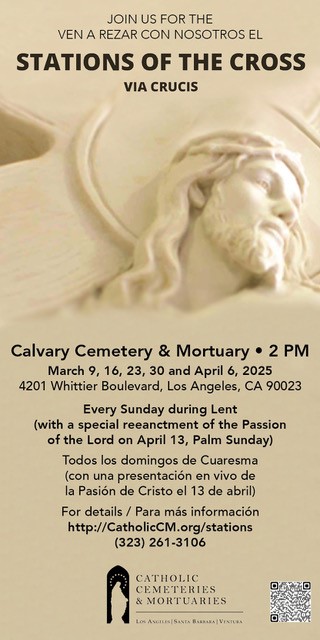Catholics in California are looking at new political alignments in the wake of the 2018 midterm elections at the federal and state level that will shape how they advance the social teachings of the Catholic Church.
The results are challenging the Church’s leaders to think creatively about how to address major issues such as immigration, affordable housing, and the right to life and dignity.
On the federal level, the midterms ushered Democrats back into power in the House of Representatives, with self-identified Catholic Rep. Nancy Pelosi of San Francisco expected to wield the Speaker’s gavel once again.
But the “blue wave” also dealt the pro-life movement a historic defeat, as there were too few pro-life Democrats left to make a bipartisan pro-life majority with the Republicans in the House for the first time since the 1973 Roe v. Wade decision that liberalized abortion access throughout the U.S.
The development represents the fruition of a decadelong campaign by Planned Parenthood to purge the Democratic Party of pro-life voices, and the political pro-life movement’s failure to recruit, retain, and support pro-life Democrats over that same period.
At the same time, Republicans actually strengthened their control of the Senate, picking up three more seats, and possibly a fourth once election results are certified in Arizona. The president will now have greater leeway in appointing more conservative jurists to the U.S. Supreme Court willing to overturn Roe v. Wade.
In California itself, Sen. Dianne Feinstein retained her seat, and Democrats are expected to pick up four congressional seats, ending the careers of two GOP stars in the House, Reps. Dana Rohrabacher and Steven McKnight.
Former San Francisco Mayor, now Gov.-elect Gavin Newsom, Lt. Gov.-elect Eleni Kounalakis, and Attorney General Xavier Becerra, all handily won their races. Democrats maintain solid majorities in both chambers of the Statehouse.
California’s blue wave saw voters reject President Donald Trump’s agenda and his acerbic style of politics, according to John Pitney Jr., professor of politics at Claremont McKenna University. Pitney pointed out that Trump’s anti-immigration stance was not the only issue for Californians — the tax reform Congress passed hit California’s middle class hard by removing the ability to deduct state and local taxes.
But the overall electoral landscape, Pitney said, remains “conflicted” for the Catholic Church in California. When it comes to social welfare policy, Pitney said, the Church saw many leaders elected who share similar concerns.
“But when it comes to issues of abortion, and assisted suicide, it’s a different story,” he said.
Propositions: Rise and fall
California had a number of propositions before voters on the ballot, including some addressing the housing crisis, mental illness, taxes, and children’s hospitals. Andrew Rivas, executive director of the California Catholic Conference (CCC), told Angelus News that the CCC did not endorse any proposition this year, because the bishops understood there was room for prudential judgment.
“It was better for people to come to their own conclusions,” he said.
Regarding the housing crisis, voters approved housing assistance bonds (Proposition 1) 54.1 percent to 45.9 percent, and mental illness housing bonds (Proposition 2) by 61.1 percent to 38.9 percent. However, voters rejected Proposition 10’s bid to expand municipal powers on rent control by 61.7 percent to 38.3 percent.
Rivas said the CCC is looking forward to building relationships with lawmakers in Sacramento to help solve the housing crisis gripping the state. He said it was clearly an issue that demanded local, state, and federal coordination on finding a solution.
“We need more discussion and cooperation to be happening with different communities,” Rivas said.
Pitney said subsidies for housing, not rent control, may be the economically better way of easing the housing crisis. But the problem is the funding of social welfare programs, and the economic expansion and tax surpluses that were reaped during outgoing Gov. Jerry Brown’s administration might dry up.
“That could be the defining problem of the Newsom administration,” he said.
DACA on deck?
Divided governance at the federal level may open up new opportunities on immigration and life issues, provided President Trump, House Democrats, and Senate Republicans are able to come together to strike a deal.
Isaac Cuevas, director of Immigration and Public Affairs for the Los Angeles Archdiocese, told Angelus News that comprehensive immigration reform remained out of reach, but he remained hopeful the split Congress could revive efforts to codify DACA (Deferred Action for Childhood Arrivals) in federal legislation.
Kathleen Buckley Domingo, director of the Office of Life, Justice and Peace, saw a similar opportunity to enact paid family leave legislation — an issue Trump campaigned on, but was a dead letter in the GOP-controlled House — that could address some of the economic “push factors” behind abortion.
“The life issue is a moral issue, but it’s also an economic justice issue,” she said.
But this hinges on whether a deal can be struck. Pitney noted that Trump seemed open to the possibility at a November 7 media conference, but then made it clear that all deals were off if House Democrats launched investigations of the White House.
“In light of the firing of Jeff Sessions, I think it is certain the Democrats will be doing a lot of investigating,” Pitney said.
“I’d be surprised if major legislation passes on any issue given the sharp divide of the parties.”
Problems, opportunities for life
At the state level, Catholic leaders feel confident they can build bridges to advance the ball on immigration protections, housing, and even the life issues.
Newsom, Domingo said, is expected to be more ideological than Brown on abortion. But he also is more willing than Brown to support publicly funded initiatives, such as efforts to ease the housing crisis.
“We’re very much looking forward to starting a dialogue with him, and there are many areas of agreement, especially on the need to help the vulnerable and marginalized families of our state,” she added.
Domingo said it was important for the Church to have a “both-and” approach to advancing legislation building a culture of life and family: making the case for enshrining legal protections for life and marriage, while building consensus to address the major economic problems that drive abortion and destabilize families.
Right now, Domingo said, paid family leave, bringing rents down, and making housing affordable are some of ways to advance the Church’s vision for a just society in California.
“These are the kinds of things that will encourage women to want to keep their children, and help families want to get married and raise their children.”
Peter Jesserer Smith is a staff writer for the National Catholic Register, and a frequent contributor to Angelus.
SPECIAL OFFER! 44 issues of Angelus for just $9.95! Get the finest in Catholic journalism with first-rate analysis of the events and trends shaping the Church and the world, plus the practical advice from the world’s best spiritual writers on prayer and Catholic living, along with great features about Catholic life in Los Angeles. Subscribe now!

